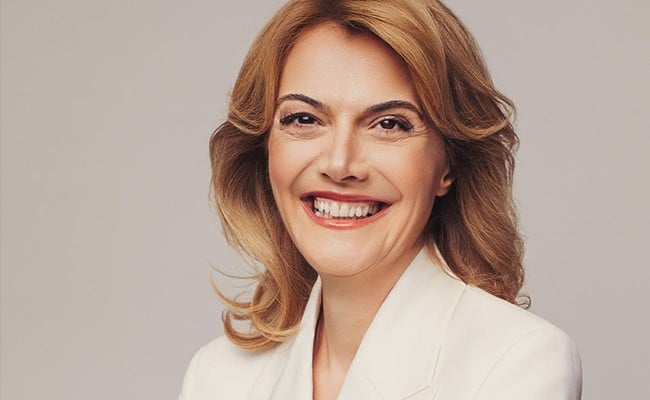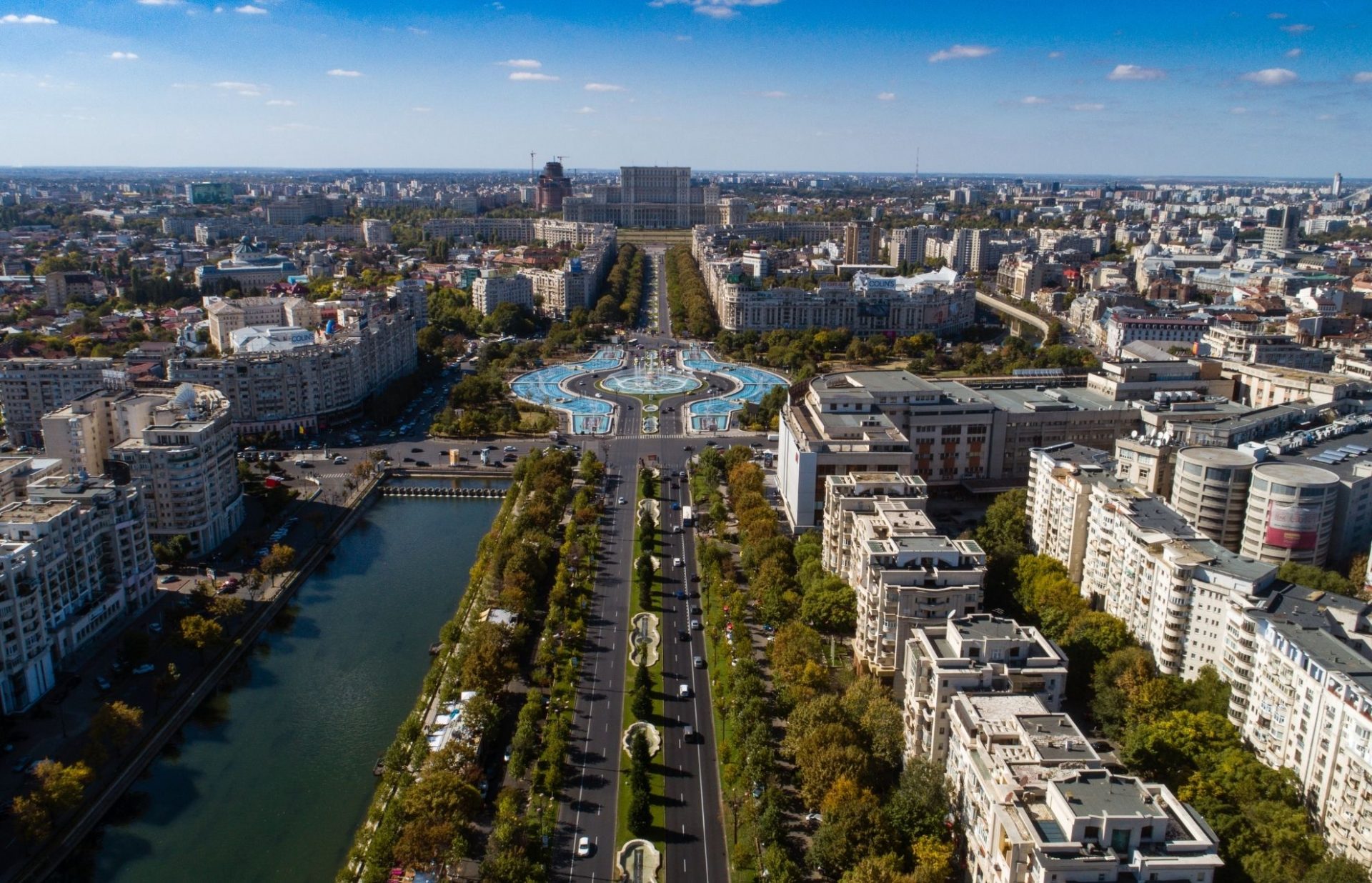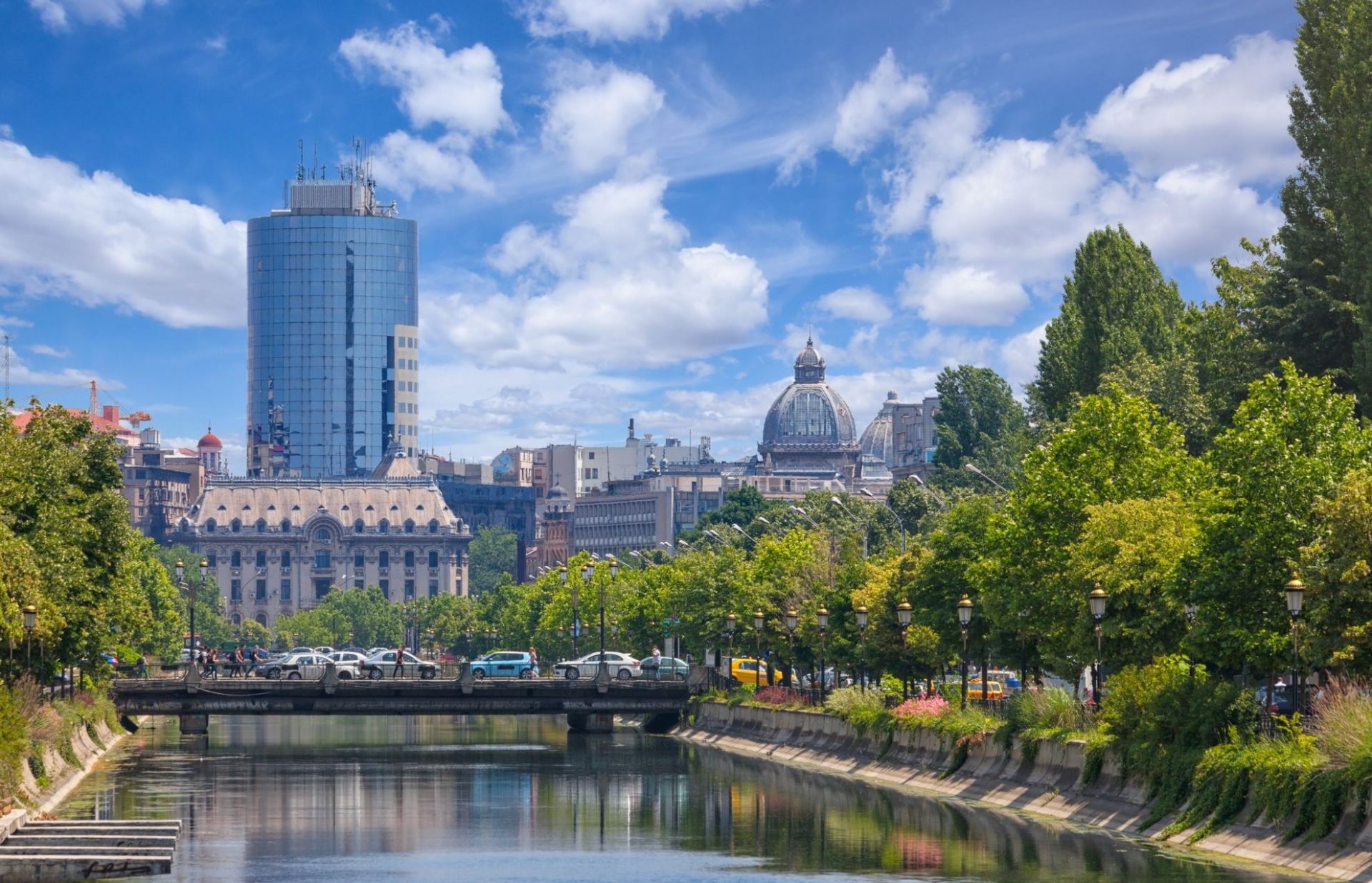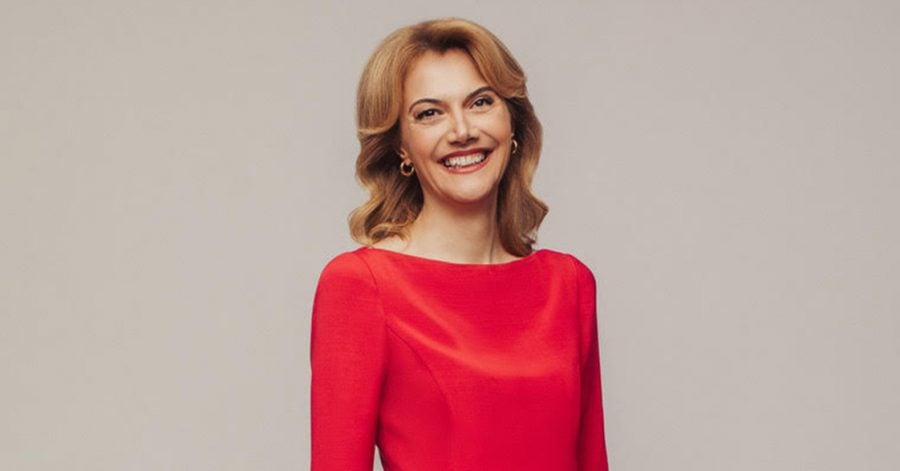“I feel like my role is to be more of a ‘traffic light’ when founders find themselves at a crossroads,” says Ana Maria Andronic, an international intellectual property expert, Romanian angel investor, and former Bucharest-based judge.
The Recursive talked to her about the female perspective on angel investing, but also to discover the local tech startup scene through the eyes of a professional with various experience on the matters of technology transfer. In the interview, she shares what is Romania’s USP and what tech verticals are rising in 2022.
A lawyer turned angel investor
Ana Maria Andronic is the Head of Intellectual Property and Technology Practice Group, part of DLA Piper Dinu SCA, the Bucharest-based office of the global law firm. She has been counseling tech startups, as well as IT companies founders for the past five years, on topics such as privacy, copyright, and trademark-related matters, to name a few.
Ana Maria has graduated from the Faculty of Law at the University of Craiova, Romania. Then, she obtained a Master’s degree in Intellectual Property Law and Internet at the State University of Louisiana, USA. For the past decade, she has been qualified to practice law both in Europe, as well as in America.
The lawyer turned angel investor has been an avid promoter of the tech startup ecosystem since 2011. Then, joined by Daniel Visoiu, Marius Ghenea, Radu Georgescu, Orlando Nicoara, Peter Barta, and Dragos Roua, she established the Venture Connect Foundation. Their goal was to organize a bi-annual event to build one of the first networks of angel investors in Romania and entrepreneurs seeking new funds.

THE RECURSIVE: You have been a promoter of the local tech startup ecosystem for over a decade now. What fascinated you most about this field?
ANA MARIA ANDRONIC: I think that the underlying reason for which I am in the middle of this ecosystem is the fact that I have always been attracted by progress. One of my first and most important discoveries in law school was when I realized that intellectual property protects progress and innovation. Later on, when I got my first computer, I realized that technology enables progress. It was the “a-ha moment” when I grasped that this moves the world forward. From that moment on, I was sold.
How is the market now compared to when you began?
The market has been developing at a high pace in the last two to three years.
In the beginning, we had to „break the ice”. Founders were attracted by the possibility of getting investment for their company, but they had no idea how to pitch it to an investor. They used to be reserved in terms of exposing information about their companies, sharing trade secrets. One could say that they were overly protective of what they were creating.
Over time, they realized that the interaction with the investors is beneficial, and they became open to discussing more with them. That was the moment when things started developing, initially at a slower pace. About three to four years ago, when venture capital funds became more active in Romania, the ball started rolling.
Does Romania need to update its legal framework to help boost the Romanian tech startup ecosystem?
In my experience, the government in any country is always a little behind the private sector in terms of the pace with which progress is made. I would dare to say that the Romanian authorities are aware of the vibrant tech community that we have; they should be proud and eager to support it as much as they can.
One thing that could make the country more interesting, in terms of attracting investments, would be to have the legislation for creating venture capital funds more accessible and friendly. I have witnessed over the last months’ people aiming to set up venture capital funds, but it seems that they still have to navigate an intricate framework of legislation and approvals to get this done.
Another thing that might be helpful is the improvement of the legislation regarding corporate entities, how they are governed. This legislation has been amended several times over the years and I think all those amendments were well-intended and received, yet, there are still some important things to be done. For example, the legislation regarding the setting up of an employee stock option plan (ESOP) might become even easier to implement for Romanian start-ups.
At the same time, having said this, I don’t see Romania as a jurisdiction where you cannot do venture capital investments or transactions.
There are always solutions to move forward, and the vibrant proof of this is that our tech community is constantly evolving. My only wish is that these things will happen faster. The key to advancing is to organize discussions between the public sector and the private sector representatives, so that both parties listen, understand, and correlate better with each other’s needs.

What is the key USP of Romania that could attract more foreign investors?
I think that we are problem solvers, and this is the mindset with which one builds a company and solves an economic problem.
Historically, on the educational front, Romania has had great technical universities, so a lot of knowledge has been built over the years. Unfortunately, it seems that we are a bit lagging in terms of business skills, but that is understandable since we have not lived in a free-market economy for a significant period.
You have prepped many tech startup founders before a pitch presentation with investors. Can you share with us one presentation that dazzled the investors, and what made it stand out if there was such a thing?
You don’t see bad pitches anymore, although I would say that I still haven’t seen a stellar one. The most important thing is that I have witnessed the increasing quality of these pitches.
A pitch is a great opportunity for a founder.
The first thing investors tell founders is: “you have five minutes to impress me.” So, it is not about just simply presenting your company, but about impressing someone with substantial information about your company. This is the higher standard that the founders should measure against when preparing a pitch.
The Venture Connect Foundation initiative has reached the first decade, how do you envision its growth in the next one?
Our overall goal at the time we launched was to simply “break the ice” and to facilitate investments in tech companies. Then, pitching to an investor was not known or done in our tech industry sector. It was a pioneering initiative of which I, together with all our board members, am very proud. It was a “win win win” initiative: the entrepreneurs were winning, the investors were winning, the lawyers were winning and getting deals done.
When an industry is growing, everyone is benefiting from it.
We believe we have reached our goal, and the “map” looks quite different right now. Many improvements have been made, the ecosystem developed strongly over the last years, and that is a wonderful result.
On my end, what I can say is that I will never stop thinking about how we can progress and improve this industry. There is certainly room to do more, and I will let the market tell us what we all need to do and where we need to act next.
What verticals have you seen developing recently in Romania?
There are some niches I see and ones where I have been active as an Angel Investor as well. One is related to the concept of “metaverse”, under the broader sector of “entertainment”, meaning everything related to a virtual world. I see this is poised to grow rapidly. I know there is some typical initial resistance to this, like with any new thing, but this progress towards new areas of technology cannot be stopped, in my humble opinion.
One other sector where I have seen a rise in investments is blockchain and everything based on it, like crypto. For example, the NFTs are now the first use case of blockchain technology in a commercial context and are increasingly visible.
I have made a few investments in the digital marketing sector, this has been a trending sector as well.
Last but not least, energy and sustainability are getting more attention, as they should. I have seen startups and companies active in the waste management industry, as well as other energy-related fields. With the global challenge that we have right now, from an economic perspective, I think this is going to increase significantly in the future.

What can you tell us about a few of your recent investments as an Angel Investor in Romania?
Since I have been so active in this industry, I have been lucky enough to be close to many entrepreneurs in very different fields. As an example, I feel fortunate to have been close from an early stage to the Green Horse Games company, which is an online gaming company founded by entrepreneur George Lemnaru.
Recently, I have invested in two digital marketing companies, FameUp, a platform that connects micro-influencers with brands looking to expand their social media reach, and Qube, a social media strategy and productivity company. I have an eye on a few other companies as well.
Do you believe your experience with the law and intellectual property has made you a better investor today?
Yes, I think that having a perspective coming from this angle helps, even though one can argue that, as a lawyer, you might be less inclined to take risks and rather tempted to be more risk-averse. In essence, when I invest, I think analytically, and first I ask myself why am I doing this.
I am always looking at what makes that company progress and the resilience of the founders.
I also help with legal advice on how to protect valuable intellectual property, but I am often asked to contribute with more than legal advice; for example, with know-how on setting up the strategy and overseeing the overall venture capital “life” of a company.
Many times, I feel like my role is to be more of a “traffic light” when founders find themselves at a crossroads. I help present the data on each of the roads ahead, I point out what will happen if they go in a certain direction or another, and they decide on the next move.
In simple words, I don’t think you can follow just the financial reports and decide to invest in a company. It has to be more than this. In addition to the money, you either provide mentorship, contribute with connections, or increase sales strategy, to name a few.
What is your key strength in a well-known male-dominated world or industry?
I believe it is a mix of traits, not just one, and these are non-gender-related but rather nuanced from one professional to another.
I think that the first and most important thing is to be a professional in your field. This goes without saying. From this, I think it derives the second trait, which is the ability to build trust. I believe trust is the key to everything. That’s how you get your place in the world, in any industry; that’s how you are seen, listened to, and valued. Last, but certainly not least, I believe that your system of values matters enormously. In other words, integrity. With integrity, you can break any barriers.
What would you like to pass on as a mentor to the new generation?
I would like to pass on the idea of “resilience”. I think it is an indispensable trait that you can develop over time. It is something that you need in any aspect of life and the sooner you realize that, the better. I think that no one has ever succeeded without it (including the tech world), and no one has ever walked a path that was not tested by resilience.







